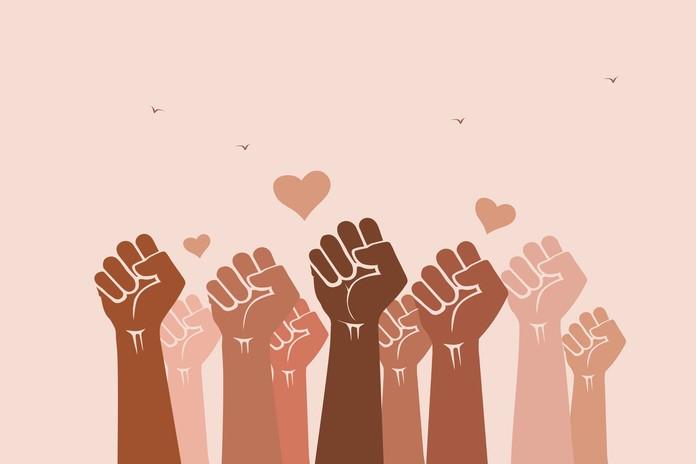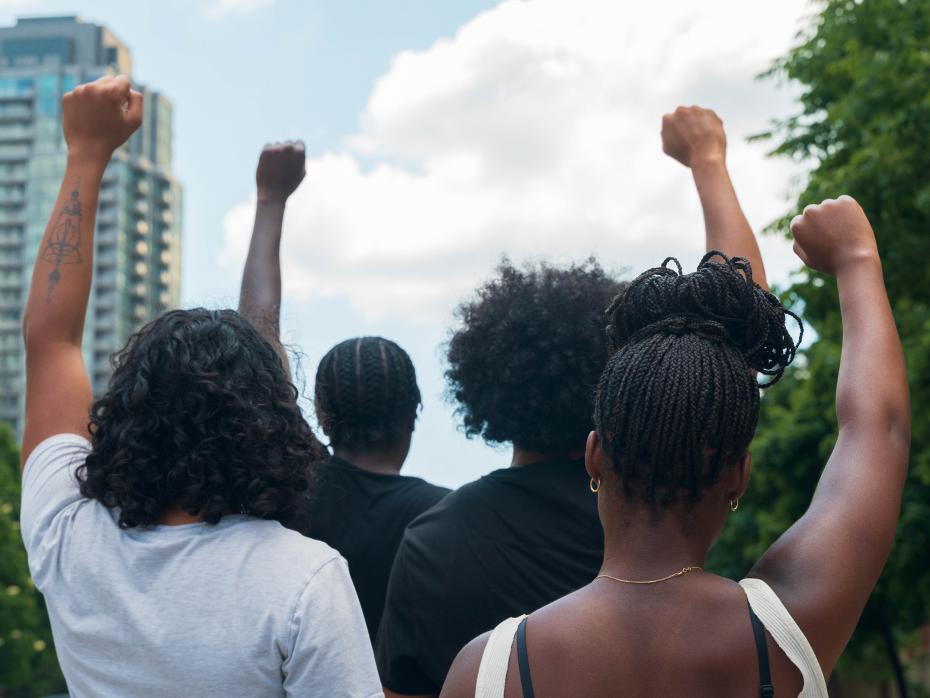The racialised murder of George Floyd in the US at the hands of the police and subsequent outrage among many in the Anglo-American world prompted several universities to make concrete commitments to taking action against racism. There was a recognition that institutions claiming to be diverse and non-racist was not enough; what were required were honest conversations and tangible efforts in an attempt to become anti-racist.
However, what allyship means in practice is often subject to confusion. Here we share practical advice and guidance, based on our experience, on how to ensure allyship is taken seriously in higher education institutions.
1. Start with understanding what allyship is
Allyship starts with acknowledgement of privilege, though it does not end there and also requires concrete action. Being an effective ally is to not be silent in the face of social injustice and unfairness experienced by those who are marginalised and minoritised. In our toolkit, Kate M. Graham points out that allyship is all about extending solidarity and taking action to ensure society’s fairness. In order to do this, acknowledging inequalities and understanding how structural barriers are built to perpetuate racism is crucial.
- Backing Black scholars: here’s how universities can do better
- Ten actions lecturers can take to boost black students’ belonging
- Why is self-reflection core to decolonisation and anti-racism in the academy?
2. Establish working groups and leadership that focus on EDI
The Black and Minority Ethnic (BME) Network at the University of Westminster, where we work, was established in 2017 and has been a safety net for colleagues from minoritised backgrounds. Our experience of working collaboratively with our senior leadership team, and with other equity, diversity and inclusion (EDI) networks, and of developing allyship within the university and beyond has been instrumental in our attempts to combat racism.
Having strong strategic leadership across the university in terms of EDI is key to effective allyship. This has to be embedded within departments and faculties university-wide. For example, we recommend establishing EDI student and staff working groups/committees university-wide and also within departments/faculties. Given the hierarchies within institutions, buy-in from senior leadership is an absolute must in order to have a governance structure that balances conversation and action, scrutiny and accountability. Having an EDI committee that is large enough to be representative yet small enough to be effective in decision-making is helpful. A model can be one where senior leaders and EDI representatives share equal responsibility.
The university EDI committee can oversee different activities and initiatives taking place across the university and lead the project of culture change. These could be EDI auditing of each school and department, an action plan from each unit on how they will pursue the university’s visions and goals, the creation of a task force and groups to identify common challenges and share good practices, and increased visibility for those involved in EDI work.
The committee should avoid focusing on specific EDI matters only but should instead take a holistic approach. It has to have a crucial role in writing the university’s overall EDI strategy and ensuring different stakeholders do not treat EDI as an “add-on” or “tick-box” activity or task. This can be achieved by regular monitoring, holding senior and middle management leaders accountable, embarking on a suite of positive actions, providing mentoring programmes, making EDI a standing item for all major committees and an essential part of recruitment and progression processes, including EDI objectives in professional and staff development reviews for everyone. EDI is not an option, but a core of institutional life.
Allyship within such a committee requires those from dominant identities to learn to listen, be mindful of their privileges and be there to support and champion those from non-dominant identities. In addition, a dedicated EDI “student champion” – a paid role developed and introduced to champion EDI matters using the student voice – is also beneficial in the drive to become an anti-racist university. The student champion should sit on the highest decision-making committees/meetings alongside the relevant senior EDI leaders. We need ownership from senior management in strategic leadership positions for EDI matters along with EDI-related training to ensure allyship is more than skin deep.
3. Tackle ‘I don’t see racism’ or ‘I don’t see colour’
Some believe that racism is an exaggeration. Many imply that they do not see racism because they have no experience of it. Dr Graham states: “The assumption that we would identify every injustice and that our personal experience is the same as everyone else’s is, too, a sign of our privileged position. In those cases, the best thing we can do is listen. Even if you do not fully understand, engage in active, empathetic listening.” Both white and non-white people in British universities may adopt this position. For those belonging to dominant white communities, this is privilege. For some BME persons, this is an attitude of “if I don’t see it, it will not happen to me”. Allyship is about honest reflection.
4. Promote an environment that allows open and honest conversations
One of the problematic issues in tackling race inequalities is uncomfortable conversations about race inequalities, which many people – staff as well as students – shy away from. Many do not know what they can do to be allies and, as a result, remain silent. Some are silent because they fear they will make mistakes. But silence is a privilege too. Those of us who are minoritised and have our experiences invisibilised need allies to speak up, even at the risk of making mistakes. Taking proactive steps to promote allyship within your own institution by hosting events to ensure allyship is accessible to all is a must. At the University of Westminster, we have established a series of events under the title “Westminster Conversations”, tackling prejudices such as racism, sexism, homophobia, ableism and so on. We don’t erase intra-BME differences, but we seek to move beyond difference to work with shared humanity.
5. Allies need to listen
By attending events, engaging in learning, reading and hearing black and other minoritised people’s stories, we are contributing. Our presence shows that we care and want to make change.
6. Focus on small changes without losing the big picture
We cannot be experts on everything. “Think about the spaces that you are in, and then think about how you can read, listen and engage in ways that will help you make changes in the spaces that you are in,” our ally Dr Graham suggests.
Decolonising curricula offers an accessible way for staff to activate Dr Graham’s comments. At the University of Westminster, we are developing subject-specific Decolonising the Curriculum toolkits. For example, the psychology decolonising toolkit invites colleagues to approach the task reflectively by, first, exploring their identity, privilege and intersections through the lens of the protected characteristics (Equality Act, 2010), while extending their thinking to include background, culture and social class. Second, colleagues are asked to increase awareness of anti-racist praxis and practice by reading, listening to and watching material from experts on race and culture such as historian David Olusoga, author Reni Eddo-Lodge and the BBC’s Four Thought series. Decolonising toolkits are co-created with our students as allies who can help staff to “check” their assumptions.
Allyship is crucial to ensuring we combat racial inequalities. Without strong allyship, the fight becomes extremely difficult. As a university, we hope to develop this further by continuing to hold spaces to discuss issues where everyone is welcome. Allyship and EDI are not optional add-ons but integral to culture change. Racism, like sexism, ageism, homophobia and ableism, must be called out, meaning allyship is pivotal. Collective voices will assist in attempts to ensure higher education institutions are working towards becoming anti-racist.
Stephen Bunbury is senior lecturer in law, research, learning and development officer of the BME Network committee, member of the Black History Year Create steering group, and Black History Create programme lead, all at the University of Westminster, UK.
Deborah Husbands is senior lecturer in psychology, co-chair of the BME Network and Black History Year programme lead at the University of Westminster.
Dibyesh Anand is head of the school of social sciences, co-chair of the BME Network and EDI committee at the University of Westminster.
If you would like advice and insight from academics and university staff delivered direct to your inbox each week, sign up for the Campus newsletter.




comment